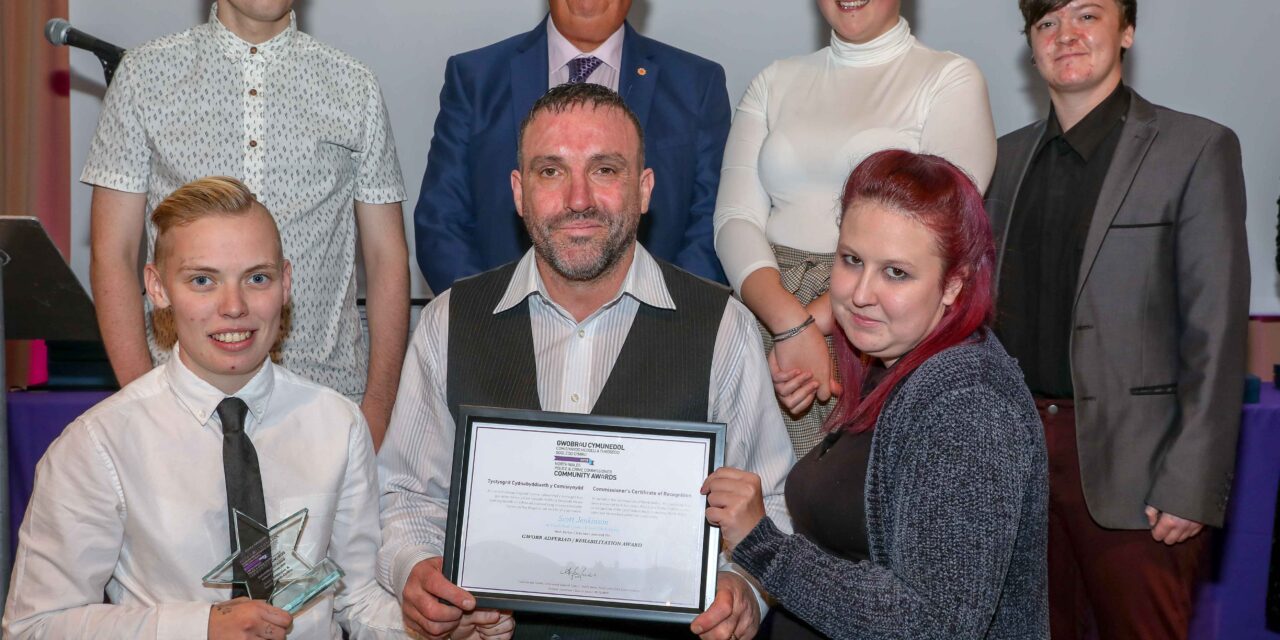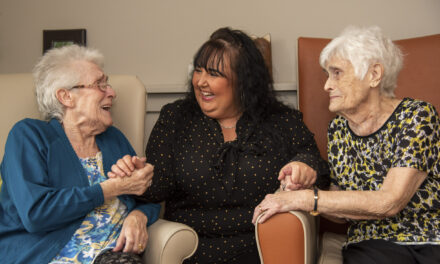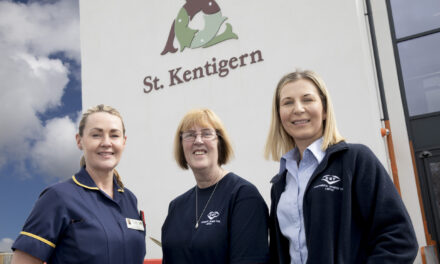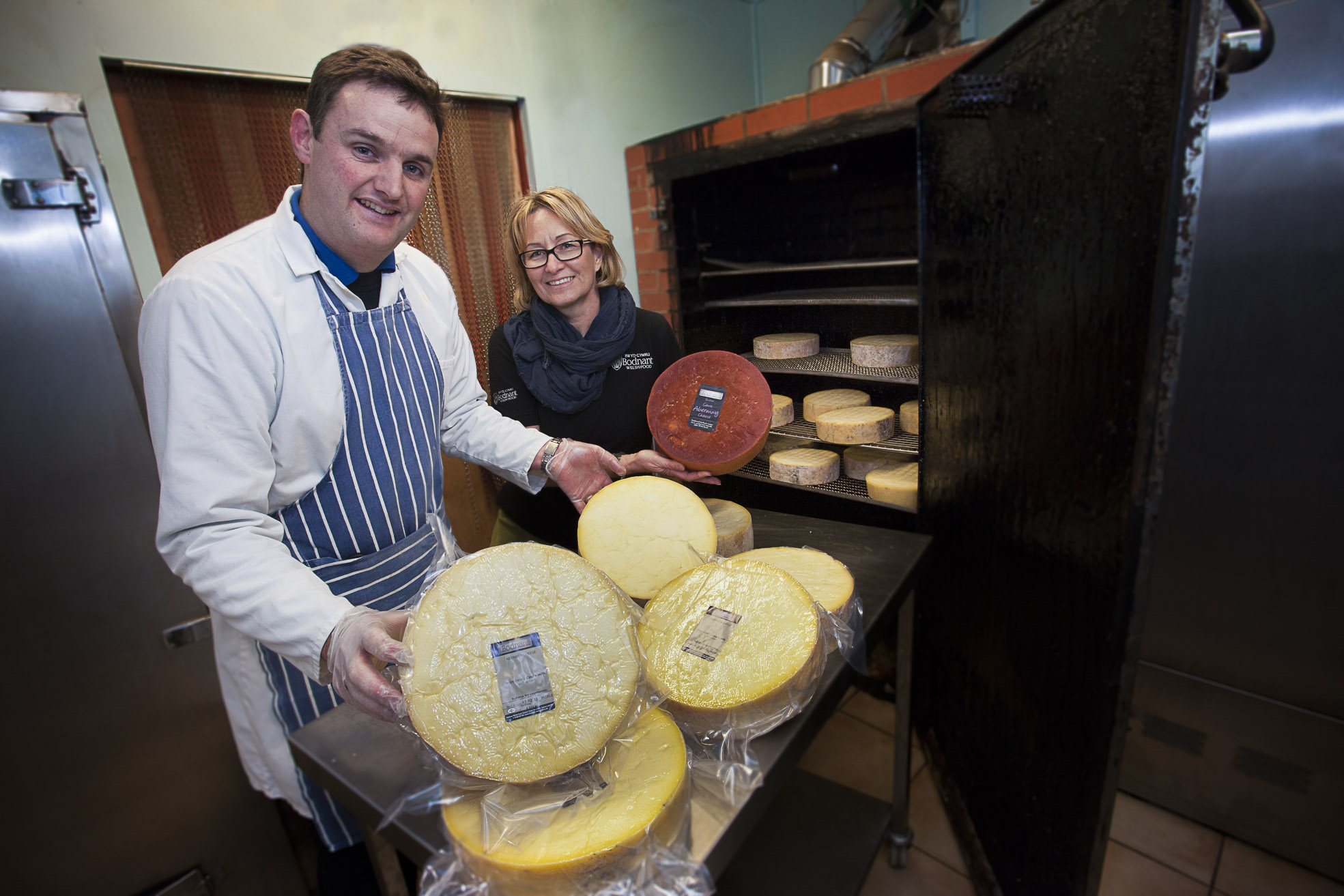A youth leader who turned his life around after successfully battling drug and alcohol addiction has won a top award for helping young people get their lives on track.
Scott Jenkinson created Youth Shedz Cymru in Denbighshire in 2017, drawing on his own recovery experience to help young people from a homelessness unit develop practical life skills and improve their future employability.
The 45-year-old, who lives with his wife Sian and six-year-old daughter Emily in Llandudno, challenged the group to help solve antisocial behaviour in the area. They came up with the idea of establishing a youth shed where young people could meet safely and explore who they are, develop positive social relationships, learn new skills and receive support from suitable role models.
With support from Grwp Cynefin the first ‘Youth Shedz’ was born in a double garage in Denbigh and the young volunteers have busied themselves ever since with a host of projects to benefit their local community.
Such was the success of the scheme that the model has now been replicated in Kinmel Bay, Colwyn Bay, Abergele and Blaenau Ffestiniog, engaging 45 young people aged from 10 to 26.
The initiative has won six awards and has enjoyed phenomenal success, with many participants moving on to further education or employment and becoming role models for younger members.
Now the scheme has another feather in its cap after scooping the Rehabilitation Award in North Wales Police and Crime Commissioner Arfon Jones’ annual Community Awards, which recognise North Wales’ unsung community heroes and crime-fighters and the impact their work has on public safety
Scott, who is a qualified adult education teacher, accepted the award at a glittering ceremony held at Theatr Clwyd in Mold.
He said: “It’s unbelievable to receive this award which acknowledges the work of everyone involved in Youth Shedz Cymru. It’s certainly not just me, it’s a combination of the people I work with, the people we support and the people who support us – it’s a joint award.
“These young people recognised that they wanted to do something for their community. They were fed up with how people saw them and they wanted to show society they had something to give.
“A lot of these young people do not have a formal education. They have created a learning environment that suits them and they do everything themselves. We get an empty shed and they transform it.
“We never look at outcomes or targets, for us it’s all about the journey.”
Arfon Jones said: “Scott has shown great strength and determination to turn his own life round and through the imaginative Youth Shedz project to help young people across North Wales do the same.
“It hasn’t just been a solution to anti-social behaviour but it has also provided focal points for these young people to meet up and develop important life and vocational skills.
“Scott has established Youth Shedz projects across North Wales and now hopes to replicate the model right across Wales.
“He is a recovered addict and alcoholic who is very public about his journey through rehab so as help others and to help protect them from making the same mistakes he did.”
The initiative aims to promote good mental health by increasing self-esteem, confidence and wellbeing among the young people involved. Among the many activities arranged are boxercise/gym, nutrition and employability skills/training.
“They wanted to be supported by people who had been there and got the T-shirt and become a ‘family’,” said Scott.
“They wanted to talk to people who understood what they were going through. It’s very rewarding for me and it makes up for all the rubbish years I had.
“There’s not enough preventative work going on across the country. There are young people with no father figure, parents, grandparents or positive role models who support them.
“Ultimately, they will follow someone that gives them attention and encouragement. Preventative projects are needed now more than ever.”
The approach is one of “learning by doing”, says Scott, and Shedz members are continually looking to exploit opportunities to improve their communities.
In Denbigh, for example, the young volunteers are creating Care Packs for the homeless community including sleeping bags, toiletries, socks, hats and gloves and have already successfully applied for grant funding worth £1,000.
Also, each Shedz community helps the next one to set up, lending practical advice and skills.
“The Police have been fantastic,” said Scott: “They have funded things for us and some of our projects. They have even been in our shedz.
“It’s a place where young people can get to know the police and realise they are not the enemy, they are human beings doing their jobs.”
In the future, Scott aims to involve more local people recovering from problems including addiction who can use their experiences to support others.
“We’ve just appointed a new member of staff with a similar background to mine. I’m trying to get those in the recovery community involved so it’s preventative as well as restorative. It’s quite unique in that sense as lots of projects are about recovery or prevention and I’m trying to bring it all together,” he said.
The Rehabilitation Award is presented annually to an individual, voluntary, social or private enterprise that works with former offenders or those at risk of offending to help them break the offending cycle.
The Rehabilitation Award may also be awarded to an individual who has shown strength and determination to turn their life around to contribute to society in a positive way.
“There are many people to thank including the Steve Morgan Foundation, Grwp Cynefin and Bangor University,” said Scott.
“Without these people who have believed in us and our young people we certainly would not be where we are today.”










